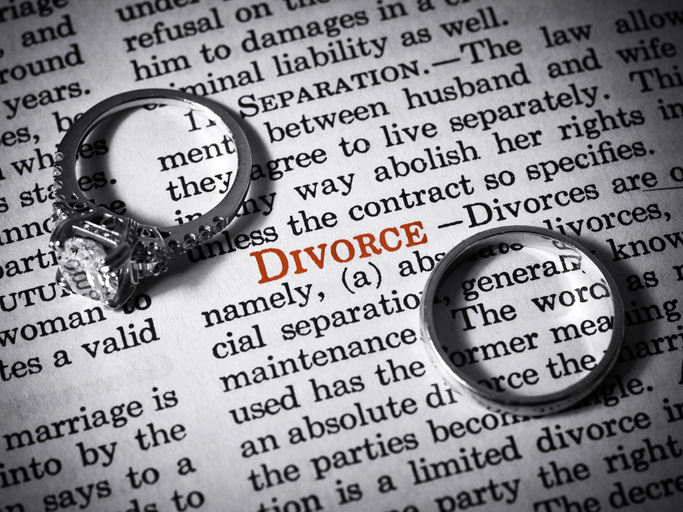

All property falls into two categories: real or personal property. Whether something is considered real property or personal property depends on a surprisingly simple test: Can you physically move it? The outcome of that test determines the distinction between real property and personal property, which in turn has real implications for taxation. Consider working with a financial advisor as you make decisions about real and personal property.
Real property is land or things attached to land. That is why you sometimes hear land referred to as real estate or realty. While materials such as wood, metal or other building materials aren’t real property on their own, they can become real property if they are attached to land. Vegetation such as trees or plants that grow on land can also be considered real property. However, plants that require routine cultivation or labor, such as crops, may not be considered real property.
Because ownership of real estate includes the rights, interests and benefits inherent in that ownership, real property is a broader, more inclusive term than real estate. For example, real property also includes minerals under the surface of the land as well as airspace above the land’s surface. Also, real property includes intangible rights including:
Personal property can be broken down into two categories: chattels and intangibles. Chattels refers to all type of property. Often, individuals use it regarding the tangible property such as a purse or clothing. Some chattels are attached to land and can become a part of real property, which are known as fixtures.
In some cases, fixtures may remain personal property. For example, at the end of a lease term, a tenant might have the right to remove fixtures they installed even if they do not have any rights to the real property.
Intangibles are forms of personal property that are not considered tangible. This means that intangible property cannot be touched or seen. The purpose of this category is to accurately address legal rights to property and not to things. Some intangible things may include bank accounts, intellectual property, franchises and licenses, insurance policies, and investments such as stocks or bonds.

Essentially, personal property is anything you can move and is subject to ownership (except land). Real property cannot be moved and is anything that is attached to land. Generally, determining the clarification for a property is simple since the differences are straightforward. However, there are cases where it is more difficult to determine what type of property you’re dealing with.
For instance, let’s say you want to build a shed in your backyard. If you visit Home Depot and purchase the materials such as lumber and other tools, this is personal property. But, once you build the structure and it’s attached to the land, it becomes real property.
Classifying real and personal property matters for several reasons. The first reason is that certain concerns may arise when a creditor wants to take possession of equipment that may be attached to a real property or if someone wants to remove a fixture when they move from a property. This concern relates to how a property is taxed, either real or personal.
In the past, many U.S. states taxed all tangible property. Now, to attract new investments and retain manufacturing, some states are moving toward eliminating taxes on personal property. This means that taxpayers’ overall tax burden may decrease.
Recategorizing specific assets may have additional tax benefits. Generally, taxpayers can depreciate short-lived personal property faster than long-lived real estate assets. In some instances, how an asset is categorized can divulge instances where a piece of property was unintentionally overlooked from taxation, or worse, received double the taxation.

Determining if a piece of property is real or personal is usually simple. But there are some gray areas when determining the classification of certain fixtures. A fixture is an article that was personal property at one point but is now attached to real property in some capacity. Typically, they are classified as real property since they are not attached.
For tax purposes, jurisdictions usually apply a three-part test when classifying a fixture associated with real property. This three-part test includes:
However, there are no rules that constitute a fixture. It’s important to note that because of the ambiguity of defining a fixture, taxpayers may face significant taxation issues.
Classifying real or personal property is a worthwhile endeavor if you want to reduce your tax burden. Because there is a lack of distinction regarding fixtures, you must become knowledgeable about the local case laws and historical evaluation practices. You may also want to consult with a tax advisor or financial advisor for a professional evaluation of your property tax position.
Photo credit: ©iStock.com/CHRISsadowski, ©iStock.com/wip-studiolublin, ©iStock.com/Moyo Studio
Ashley KilroyAshley Kilroy is an experienced financial writer currently serving as an investment and insurance expert at SmartAsset. In addition to being a contributing writer at SmartAsset, she writes for solo entrepreneurs as well as for Fortune 500 companies. Ashley is a finance graduate of the University of Cincinnati. When she isn’t helping people understand their finances, you may find Ashley cage diving with great whites or on safari in South Africa.
Read More About Financial Advisor



More from SmartAsset
SmartAsset Advisors, LLC ("SmartAsset"), a wholly owned subsidiary of Financial Insight Technology, is registered with the U.S. Securities and Exchange Commission as an investment adviser. SmartAsset's services are limited to referring users to third party advisers registered or chartered as fiduciaries ("Adviser(s)") with a regulatory body in the United States that have elected to participate in our matching platform based on information gathered from users through our online questionnaire. SmartAsset receives compensation from Advisers for our services. SmartAsset does not review the ongoing performance of any Adviser, participate in the management of any user's account by an Adviser or provide advice regarding specific investments.
We do not manage client funds or hold custody of assets, we help users connect with relevant financial advisors.
This is not an offer to buy or sell any security or interest. All investing involves risk, including loss of principal. Working with an adviser may come with potential downsides such as payment of fees (which will reduce returns). There are no guarantees that working with an adviser will yield positive returns. The existence of a fiduciary duty does not prevent the rise of potential conflicts of interest.